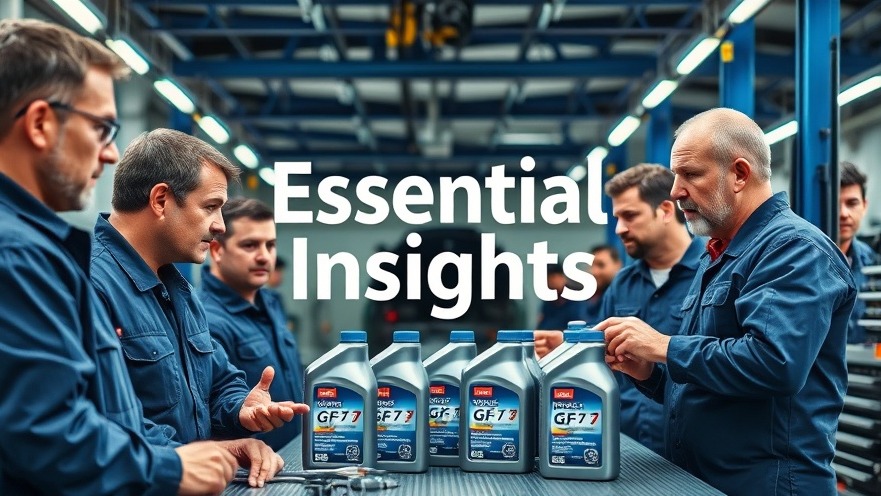
Understanding the Shift: The Impact of ILSAC GF-7
The automotive industry is on the brink of a major transformation with the introduction of the ILSAC GF-7 engine oil specification scheduled for March 31, 2025. This new set of standards is crucial for meeting the advanced performance needs of modern engines, particularly in light of stringent fuel economy and emissions regulations mandated by the Environmental Protection Agency (EPA). For repair shop owners, understanding these changes is not merely beneficial; it is essential for staying competitive in a rapidly evolving market.
Key Objectives of GF-7: Meeting Modern Demands
GF-7 is designed to enhance not just performance but also engine longevity and emissions control. One of its primary goals is to significantly improve fuel economy, fulfilling the EPA's Corporate Average Fuel Economy (CAFE) standards. The GF-7 specifications will require engine oils to facilitate a roughly 10% improvement in efficiency for model year 2026 vehicles, making it imperative for shop owners to adapt their offerings accordingly.
The Science Behind Engine Oils: What You Need to Know
The formulation of engine oils under GF-7 centers around three main components: base oils, viscosity modifiers, and additives. Base oils provide the necessary performance foundation, while viscosity modifiers ensure that oils flow consistently under various temperature conditions. The introduction of optimized additive technologies is particularly noteworthy, as these will enable oil marketers to utilize a range of base oils, including lower-tier options, without sacrificing performance. This flexibility can help repair shops offer cost-effective solutions while still complying with new standards.
Addressing Challenges: Navigating Supply Chain Concerns
The current market landscape presents challenges, including fluctuating pricing and availability of high-quality base stocks. Shop owners should be prepared to navigate these complexities as they develop their product offerings to meet GF-7 standards. By leveraging robust additive technologies, they can maintain performance across varying base oil grades, making it easier to manage supply chain disruptions.
The Environmental Implications of GF-7
Furthermore, GF-7 aligns with broader environmental goals. It supports a reduction in greenhouse gas emissions, responding to global climate change initiatives. For repair shop owners, adopting GF-7-compliant products not only ensures compliance with regulations but also positions them as responsible participants in the push for a more sustainable future.
Future-Proofing Your Business: Adapting to GF-7
As the ILSAC GF-7 specification approaches implementation, shop owners must not only educate themselves on the changes but also actively seek ways to adapt their services. This includes evaluating current inventory, seeking out compliant products, and training staff on the new specifications. By taking these proactive steps, shop owners can enhance their market position and foster customer loyalty in an increasingly competitive environment.
In conclusion, the arrival of GF-7 is set to reshape the landscape of engine oil performance significantly. As oil marketers and repair shops prepare for its debut, opportunities will abound for those who embrace both the technical challenges and the heightened standards involved. Build your knowledge now to ensure your shop can maximize this transformation.
 Add Row
Add Row  Add
Add 




Write A Comment